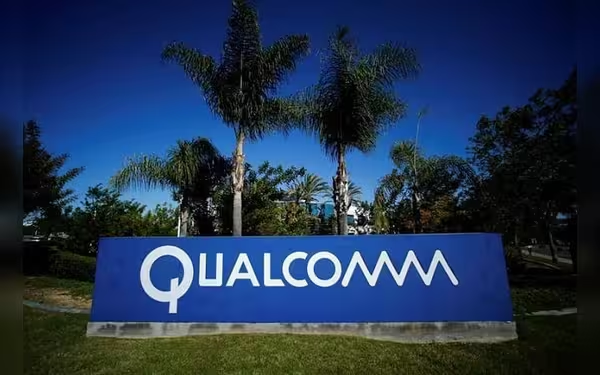Saturday, November 16, 2024 05:44 PM
Qualcomm Intel Acquisition Faces Antitrust Challenges
- Qualcomm's potential Intel buyout raises antitrust concerns.
- Regulatory scrutiny may hinder semiconductor merger.
- Financial risks accompany the acquisition of Intel.
 Image Credits: tribune.com.pk
Image Credits: tribune.com.pkQualcomm's potential acquisition of Intel faces significant antitrust hurdles and financial risks, raising concerns about market competition.
In a significant move that could reshape the technology landscape, Qualcomm is considering a buyout of Intel, a deal that analysts warn may encounter substantial antitrust hurdles and financial risks. This potential acquisition is poised to be the largest in the semiconductor industry, merging two of the most influential chip manufacturers in the world. The implications of such a merger are vast, as it would create a dominant entity with a commanding presence in the smartphone, personal computer, and server markets.
Qualcomm, known for its mobile chip technology, and Intel, a leader in computing and server chips, together would form a powerhouse in the semiconductor sector. However, this union is not without its challenges. Regulatory bodies across the globe are likely to scrutinize the deal closely, as it raises concerns about competition and market control. The merger could potentially stifle innovation and limit choices for consumers, which is a primary concern for antitrust regulators.
Moreover, Intel's foundry business plays a pivotal role in the United States' strategy to bolster domestic chip manufacturing. As the U.S. government aims to reduce reliance on foreign semiconductor production, the integration of Intel into Qualcomm could complicate these efforts. Analysts suggest that the deal might face pushback not only from regulatory agencies but also from industry competitors who fear the loss of market competition.
Financially, the acquisition poses risks as well. Merging two large companies often leads to unforeseen costs and integration challenges. Qualcomm must ensure that it can effectively manage the financial implications of such a significant buyout while maintaining its operational efficiency. Investors will be watching closely to see how Qualcomm navigates these complexities.
While the prospect of Qualcomm acquiring Intel presents exciting opportunities for innovation and growth in the tech industry, it is fraught with challenges that cannot be overlooked. The potential antitrust issues and financial risks highlight the delicate balance between expansion and regulation in the fast-evolving semiconductor market. As this situation develops, it will be crucial for stakeholders to consider not only the benefits of such a merger but also the broader implications for competition and consumer choice in the technology sector.













